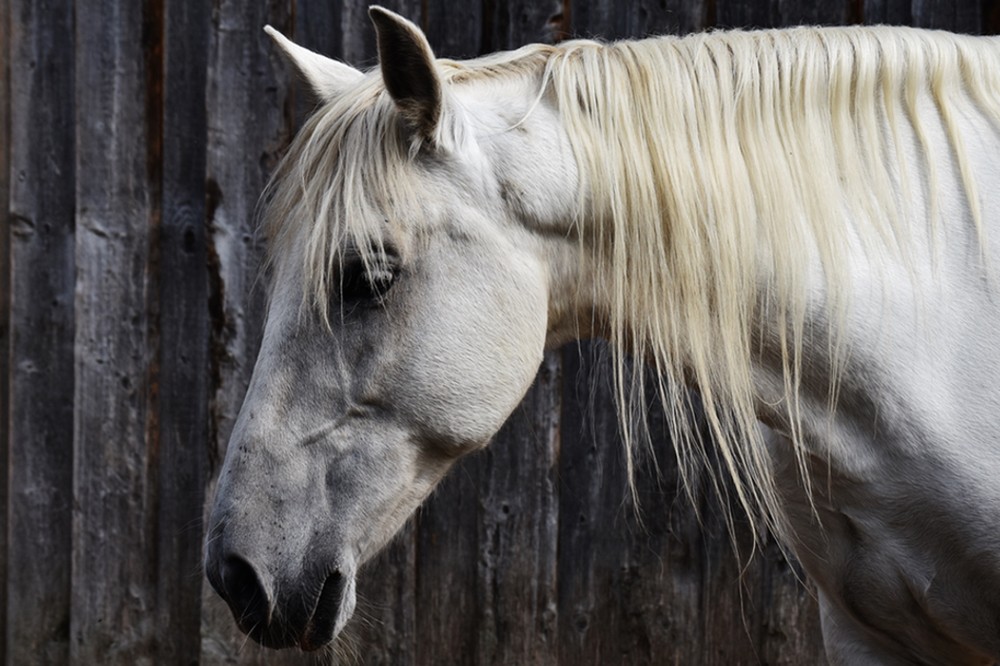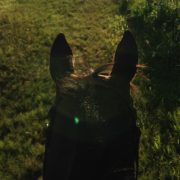Should Horses Be Able To Sue People?

Justice, a Quarter Horse/Appaloosa cross, was rescued from his home in Washington County, Oregon in March. He was 300 pounds underweight, riddled with rain rot and lice and his penis was prolapsed and severely infected. His owner, after attempting a half-successful gelding, had left Justice in a barren pasture over the winter to “free graze.”
The horse is now suing his abuser, Gwendolyn Vercher, with help from the Animal Legal Defense Fund (ALDF), for $100,000 in damages – a significant increase from the $3,700 Vercher had agreed to pay to Sound Equine Options, the shelter housing the horse. The damages are to cover Justice’s cost of care for the remainder of his lifetime, as he cannot be adopted out, and for compensation for “pain and suffering.”
My first thought, after cringing in sympathy for the Justice was: “What does a horse do with money obtained from emotional damages?” Physical care, such as food, medical, and goods such as blankets are concrete expenses, much like physiotherapy or loss of wages after a car accident. But how can emotional damages be measured by a creature incapable of verbal communication?
The Merriam-Webster legal dictionary defines emotional distress as “a highly unpleasant emotional reaction (such as anguish, humiliation, or fury) which results from another’s conduct and for which damages may be sought.” There is no question that Justice suffered such pains during his period of neglect.
Legal definition sources describe emotional distress compensation to be a grey area. “Evidentiary problems include the fact that such distress is easily feigned or exaggerated, and professional testimony by a therapist or psychiatrist may be required to validate the existence and depth of the distress and place a dollar value upon it,” says Law.com. While Justice is exempt from concerns of feigning distress, how did his pain come to receive the financial valuation that it did?
If emotional distress is a subjective area – and so is voicing the concerns of an animal who cannot speak – what happens legally when two such grey areas are combined?
If the lawsuit is successful, it would “establish that animals have a legal right to sue their abusers in court”.
The fight for animal rights is one of the most important battles being fought today. The conditions in which these fully sentient beings are sometimes kept and treated is horrific. The people who are raising these concerns are doing so out of good intention and love for animals.
The question is not whether or not the rights of animals need to be fought for. It’s how to best compensate them for abuse and neglect that they have endured. Humans can seek help from psychologists and take time off work as part of a journey towards healing mentally from a trauma. What is the equine equivalent of this?
The ALDF states that if the lawsuit is successful, it would “establish that animals have a legal right to sue their abusers in court. Oregon law already recognizes Justice’s right to be free from cruelty – this lawsuit simply expands the remedies available when abusers violate animals’ legal rights.”
Speaking truthfully for those who cannot is a razor thin line that requires tremendous integrity. Will this case change the way that abused animals are treated, or will it open a Pandora’s Box of anthropomorphism?
If you wish to donate to Sound Equine Options, who are caring for Justice, you can do it here.


